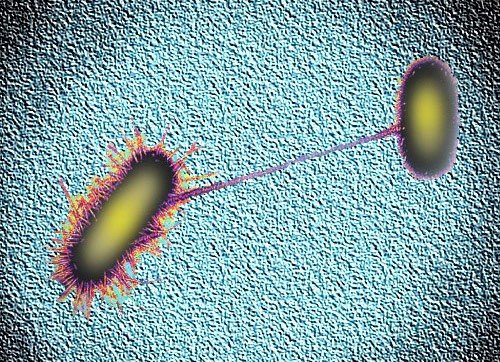POTWs embark on study documenting antibiotic-resistant bacteria, genes in effluent

SCCWRP and its four wastewater treatment member agencies have initiated a year-long study examining whether viable antibiotic-resistant bacteria – and the genes that code for antibiotic resistance – are being discharged into the environment following the wastewater treatment process.
The study, which began in June, will track whether viable bacteria and genetic material are surviving treatment at 10 POTW facilities across Southern California, including an international plant at the U.S.-Mexico border. Influent and effluent samples are being collected quarterly at each wastewater treatment plant.
The study’s goal is to develop a baseline understanding of how prevalent antibiotic resistance genes are in wastewater effluent at Southern California’s treatment facilities. If these genes are surviving the treatment processes that destroy most bacterial cells, this genetic material could be traveling via treated effluent into aquatic systems, where potentially pathogenic bacteria in the environment could be taking up the antibiotic resistance genes. In this way, antibiotic resistance could be conferred to bacterial strains that make humans sick – a phenomenon that research has shown can lead to multidrug-resistant “superbugs.”
The study also will examine whether differences in wastewater treatment regimens and effluent discharge practices across Southern California affect the viability of antibiotic-resistant bacteria and genes. This information will be particularly timely given that treated effluent in Southern California increasingly is being reused for water recycling projects, including direct groundwater injection.
During the study, researchers will screen for three classes of bacterial pathogens resistant to antibiotics: vancomycin-resistant Enterococcus (VRE), methicillin-resistant Staphylococcus aureus (MRSA), and carbapenem-resistant Enterobacteriaciae (CRE). Carbapenems are often the antibiotic of last resort against many life-threatening infections.
Researchers will then use DNA-based methods to identify the antibiotic-resistant bacterial species and the antibiotic resistance genes in the influent and effluent. To determine which genes to target during this molecular analysis, researchers are partnering with the Argonne National Laboratory at the University of Chicago, which has curated a large database of known gene sequences coding for antibiotic resistance. Argonne National Laboratory has conducted similar antibiotic resistance work in the Chicago River.
Study participants have spent the past few months optimizing lab analysis techniques to ensure they can generate high-quality, comparable results across facilities participating in the study. The majority of the POTW facilities are scheduled to finish their first round of sampling by September.
For more information, contact Dr. John Griffith.
More news related to: Microbial Source Tracking, Microbial Water Quality, Top News